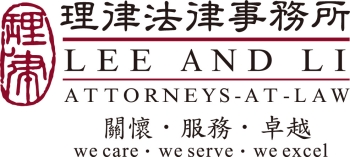On 7 January 2021 the Taiwan Intellectual Property Office (TIPO) published draft amendments to 53 articles of the Trademark Act. This article summarises the main changes that the amendments introduce.
Introduction of independent TIPO agency
The amendments introduce a new TIPO Appeal and Dispute Board, which will be responsible for deliberating on trademark remedy cases. Three or five TIPO Appeal and Dispute Board members will deliberate on appeals and disputes using various mechanisms (eg, oral arguments and preliminary proceedings). In the process of such deliberation, the TIPO Appeal and Dispute Board will adopt new approaches (eg, disclosing moral conviction, where appropriate, and giving notice of the conclusion of deliberation proceedings).
Parties that wish to contest TIPO decisions must initiate appeal proceedings with the TIPO Appeal and Dispute Board within one month of receiving such decisions. The TIPO Appeal and Dispute Board will examine trademark application review cases based on written statements but may order oral arguments ex officio or at an applicant's request. The TIPO Appeal and Dispute Board will examine trademark invalidation cases based on oral arguments but may examine such cases based on written statements ex officio or at the agreement of the parties involved.
Reform of remedy procedure for trademark cases
Parties that wish to contest TIPO Appeal and Dispute Board decisions may skip the appeal process and initiate legal proceedings directly with the Intellectual Property and Commercial Court within two months of receiving such decisions. Therefore, the amendments restructure the litigation and remedy procedures for trademark cases. Trademark dispute litigation concerning private rights will be examined in civil proceedings, with:
- the parties involved listed as the plaintiff and defendant, respectively; and
- the trademark right listed as the suit's subject matter.
The resolution of private trademark right disputes via deliberation and legal proceedings regulates the timeframes during which parties can file various means of attack and defence.
Abolishment of opposition proceedings
The requirements for instituting opposition and invalidation proceedings are the same (excluding the fact that only interested parties can initiate invalidation proceedings). Further, approximately 97% of oppositions are based on relative grounds.
The amendments enable any party to file an invalidation action regarding a trademark registration on absolute grounds for refusal, making the process equivalent to opposition proceedings. Accordingly, the amendments abolish opposition proceedings, leaving only two types of dispute proceeding: invalidations and cancellations.
Introduction of transitional provisions
The amendments introduce transitional provisions to determine the applicability of the new law. Oppositions and cases that have been decided prior to the enactment of the draft amendments are subject to the previous law. Pending cases and those that have been remanded and sent back to the Trademark Office through appeal or administrative suits prior to the enactment of the draft amendments are subject to the new law.





